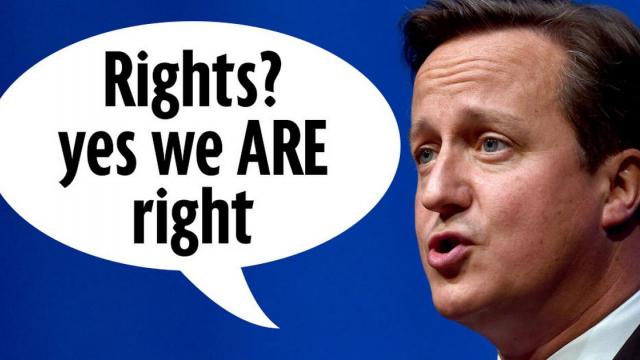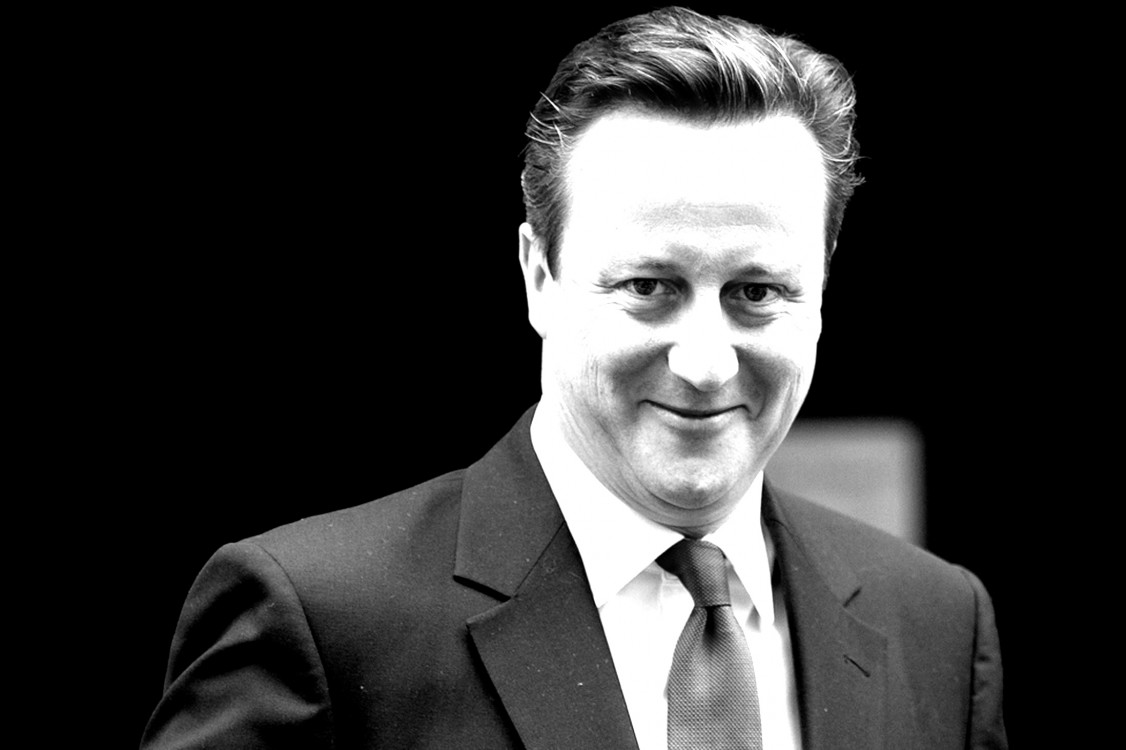
The U.K.'s Conservative government has put forward many drastic proposals since its election in May, but one particularly stands out against the rest. The Tories, resentful of the sway held over Britain's legal system by the European Union, want to scrap the Europe-wide Human Rights Act, replacing it with a “British Bill of Rights and Responsibilities.”
The Human Rights Act protects the right to life, liberty, security, a fair trial, respect for private life and freedom of expression. It also bans torture, slavery and discrimination. The HRA, which covers individuals, corporations and the government, was originally created by human rights lawyers after World War II. It became part of British law in 2000, meaning that British citizens can take a case to a European court if they cannot settle it domestically.
Critics of the HRA say it has contributed to illogical rulings. They cite the ongoing case for prisoners to have the vote, and the decision to delay deporting and leveling terrorist charges against fundamentalist Muslim cleric Abu Qatada because of a possibility that he'd been tortured for evidence. Prime Minister David Cameron supported the proposal to scrap the act with the chilling words: “For too long, we have been a passively tolerant society, saying to our citizens 'as long as you obey the law, we will leave you alone'.”
Cameron claims his party's new "Bill of Rights" will be based on “core values” and will specifically recognize British culture. Beyond this, he has offered little information on how it will differ from the HRA.
By contrast, the many U.K. citizens who support the HRA insist that without it, citizens' sovereignty will not be protected. The HRA is the only international human rights agreement that allows individuals such a degree of power and protections. At a time when the rights of the most vulnerable are being attacked, and benefits along with legal aid and other crucial assistance are being eroded, free speech and protest have come under intense fire.
For this reason, they say, removing the legal “stabilizers” provided by the E.U. could be catastrophic. The U.K. government has already gotten away with far too many violations under the HRA, they contend – and guided solely by legislation the government itself has drafted, the unthinkable may happen.
The Human Rights Act has affected justice in several high profile cases. Two sisters found that French courts could not bring adequate punishment to their abusers after they were forced into labor, so they turned to the Human Rights Act. A 14-year-old rape victim in Poland did the same after she was questioned by police when she applied for a legal abortion, as did a Roma woman who was sterilized without her consent.
In the U.K., “Operation Demetrius” imprisoned hundreds of people, most of whom were innocent but were believed to be IRA members. The European Convention on Human Rights saved these people from planned torture methods such as beating and sleep deprivation.
Worryingly to man, Britain has a track record of losing cases in the European courts – a fact that doesn't bode well for the new internal human rights laws should they become implemented.
Cameron has announced that he will first try to renegotiate the terms of the U.K.'s membership of the European Convention on Human Rights. If Strasbourg rejects these proposals, Britain will withdraw from the ECHR and reject the HRA.
“Now our plans, set out in our manifesto, don’t involve us leaving the European Convention on Human Rights,” Cameron told parliament. “But let’s be absolutely clear. If we can’t achieve what we need – and I’m very clear about that when we’ve got these foreign criminals committing offense after offense and we can’t send them home because of their right to a family life – that needs to change. And I rule out absolutely nothing in getting that done.”
But isolating Britain's legal system will not simply affect Britain. It will also mean that U.K. citizens won't have a say in laws across the rest of Europe, nor present a united front when challenging laws in other parts of the world. The Human Rights Act protects those who have sought asylum or who have come to make a better life in the U.K., rather than showing bias to natives. It also prevents the extradition of immigrants to countries where they might find their human rights under attack.
Campaigners are pushing for a referendum on the proposal to scrap the HRA so that the whole British public can decide the issue, rather than just the 36% who voted Tory. However, Cameron's rhetoric suggests there is not much hope of this idea coming to fruition. He even used last month's 800th anniversary of the sealing of the Magna Carta to promote the Bill of Rights and repeal the HRA, saying: “The good name of ‘human rights’ has sometimes become distorted and devalued. It falls to us in this generation to restore the reputation of those rights and their critical underpinning of our legal system.”
Shami Chakrabarti, director of a leading human rights charity, Liberty, summed up the audacity of Cameron's statement with the words: "The Prime Minister could give a masterclass in bare-faced cheek, using Magna Carta day to denigrate our Human Rights Act. But we will take no lessons in rights and freedoms from a leader who wants to dilute them to the detriment of everyone in the U.K. and [the] wider watching world."
3 WAYS TO SHOW YOUR SUPPORT
- Log in to post comments












